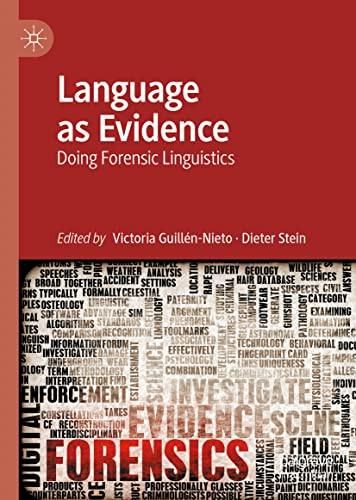Explore the World's Best Ideas
Join today and uncover 100+ curated journeys from 50+ topics. Unlock access to our mobile app with extensive features.
History Of Forensic Linguistics
The term ʻforensic linguisticsʼ was first used by Swedish professor Jan Svartvik in 1968. (Ariani et al., 2014, p. 223). Svartvik (1968) analysed the case of Timothy Evans, a Welsh miner with intellectual disabilities who had been convicted, sentenced to death and executed (in 1950) on the basis of statements he had given to police confessing to the murder of his wife and daughter. His guilt was called into question shortly thereafter, when the bones of many additional murder victims who could not have been killed by Evans were discovered in the house in which Evans had lived.
15
202 reads
The Enigma of Timothy Evans
They had been killed by John Christie—a serial killer who, by sheer coincidence, had lived in the same building as Evans. Evans was eventually pardoned posthumously in 1966. Controversy raged around the issue of whether Evans’ confessions were accurate. Svartvik subjected them to a thorough analysis, finding ultimately that although there were many suspicious discrepancies between the statements, there was too little evidence to permit a conclusive judgment on the accuracy of Evans’ confessions.
16
168 reads
Expert Testimony in the Common-Law Arena
Although Svartvik seems to have coined the term ‘forensic linguistics’, linguists had been giving expert testimony for quite some time and continue to do so. Given the relatively liberal common-law standards for admitting expert testimony, it should come as no surprise that linguists and language professionals have been introduced to address a broad array of subjects in common-law courtrooms.
16
153 reads
Beyond Science
They do not, however, always testify as classically ‘scientific’ expert witnesses. Linguistics, as a branch of the humanities, rarely generates ‘falsifiable’ hypotheses which can be tested empirically—although such hypotheses, and experiments, of course exist within linguistics. More often, however, linguists testify based on their experience and understanding, in a context well-defined by Judge Learned Hand, who spoke of ‘general truths derived from … specialised experience’ (Hand, 1901, p. 54).
16
139 reads
Silent Echoes
There has been little controversy specifically about the role of linguistic expert testimony; controversies which arise are generally similar to ones which may crop up in any case involving expert evidence.
15
149 reads
IDEAS CURATED BY
CURATOR'S NOTE
Making a list of books about linguistics for reading
“
Discover Key Ideas from Books on Similar Topics
4 ideas
Detecting Lies and Deceit
Aldert Vrij
3 ideas
Detecting Deception
Aldert Vrij, Pär Anders Granhag, Bruno Verschuere
6 ideas
Writing Skills in Practice
Diana Williams
Read & Learn
20x Faster
without
deepstash
with
deepstash
with
deepstash
Personalized microlearning
—
100+ Learning Journeys
—
Access to 200,000+ ideas
—
Access to the mobile app
—
Unlimited idea saving
—
—
Unlimited history
—
—
Unlimited listening to ideas
—
—
Downloading & offline access
—
—
Supercharge your mind with one idea per day
Enter your email and spend 1 minute every day to learn something new.
I agree to receive email updates
